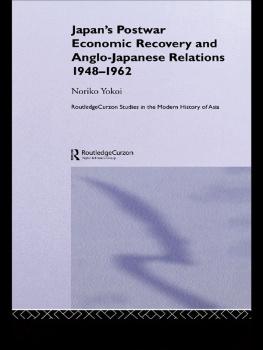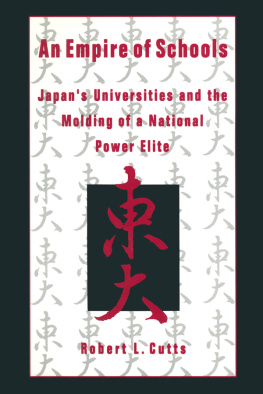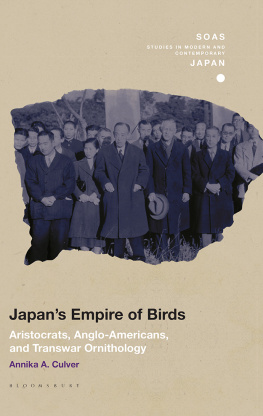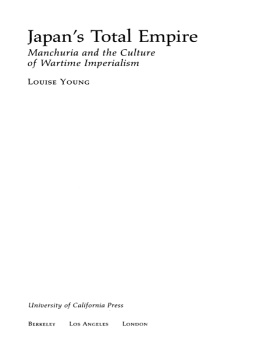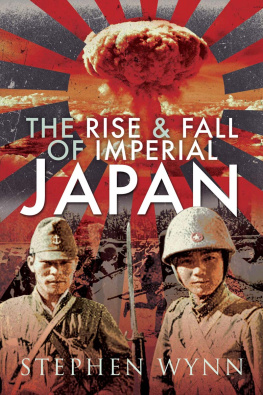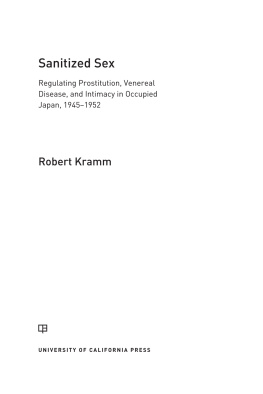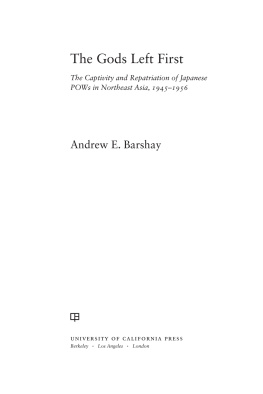When the Japanese empire ended, it did not necessarily go away. Throughout East Asia, its legacy lingers on. This volume presents fresh and exciting new work, much of it published in English for the first time. It helps us understand how the demise of empire left its mark on the beginning of the Cold War in Asia, and continues to shape political relations in the region to this day.
Sebastian Conrad , Freie Universitt Berlin, author of What Is Global History? (Princeton University Press 2016)
This ambitious volume brings together the latest in Japanese and Western scholarship on the turbulent years following the end of Japans empire in East Asia. It examines the uneven physical retreat of the Japanese empire, which disappeared abruptly in some places within days of the surrender and yet persisted much longer in other places. More than that, it grapples with mind-sets, with the changes that were forced by the surrender and those that stubbornly resisted pressure to change. It is a rewarding expedition into geographies of the mind in postwar East Asia.
Robert Cribb , Professor of Asian History, Australian National University
The Dismantling of Japans Empire in East Asia
The end of Japans empire appeared to happen very suddenly and cleanly but, as this book shows, it was in fact very messy, with a long period of establishing or re-establishing the postwar order. Moreover, as the authors argue, empires have afterlives, which, in the case of Japans empire, is not much studied. This book considers the details of deimperialization, including the repatriation of Japanese personnel, the redrawing of boundaries, issues to do with prisoners of war and war criminals and new arrangements for democratic political institutions, for media and for the regulation of trade. It also discusses the continuing impact of empire on the countries ruled or occupied by Japan, where, as a result of Japanese management and administration, both formal and informal, patterns of behavior and attitudes were established that continued subsequently. This was true in Japan itself, where returning imperial personnel had to be absorbed and adjustments made to imperial thinking, and in present-day East Asia, where the shadow of Japans empire still lingers. This legacy of unresolved issues concerning the correct relationship of Japan, an important, energetic, outgoing nation and a potential regional hub, with the rest of the region which was not comfortably settled in this era, remains a fulcrum of regional dispute.
Barak Kushner teaches Japanese history at the University of Cambridge and is the author of Men to Devils, Devils to Men: Japanese War Crimes and Chinese Justice (winner of the American Historical Associations 2016 John K. Fairbank Prize).
Sherzod Muminov is a Research Associate in the Faculty of Asian and Middle Eastern Studies at the University of Cambridge, UK.
Routledge Studies in the Modern History of Asia
For a full list of titles in this series, please visit www.routledge.com/Routledge-Studies-in-the-Modern-History-of-Asia/book-series/MODHISTASIA
116 Treaty Ports in Modern China
Law, land and power
Edited by Robert Bickers and Isabella Jackson
117 Kyoto Visual Culture in the Early Edo and Meiji Periods
The arts of reinvention
Edited by Morgan Pitelka and Alice Y. Tseng
118 Health Policy and Disease in Colonial and Post-Colonial Hong Kong, 18412003
Ka-che Yip, Philip Yuen-sang Leung and Timothy Man-Kong Wong
119 Britains Imperial Retreat from China, 19001931
Phoebe Chow
120 Constitution Making in Asia
Decolonisation and state-building in the aftermath of the British Empire
H. Kumarasingham
121 Neutrality in Southeast Asia
Concepts and contexts
Nicholas Tarling
122 Britains Retreat from Empire in East Asia, 19051980
Edited by Antony Best
123 The Dismantling of Japans Empire in East Asia
Deimperialization, postwar legitimation and imperial afterlife
Edited by Barak Kushner and Sherzod Muminov
First published 2017
by Routledge
2 Park Square, Milton Park, Abingdon, Oxon OX14 4RN
and by Routledge
711 Third Avenue, New York, NY 10017
Routledge is an imprint of the Taylor & Francis Group, an informa business
2017 selection and editorial matter, Barak Kushner and Sherzod Muminov; individual chapters, the contributors.
The right of Barak Kushner and Sherzod Muminov to be identified as the authors of the editorial material, and of the authors for their individual chapters, has been asserted in accordance with sections 77 and 78 of the Copyright, Designs and Patents Act 1988.
All rights reserved. No part of this book may be reprinted or reproduced or utilised in any form or by any electronic, mechanical, or other means, now known or hereafter invented, including photocopying and recording, or in any information storage or retrieval system, without permission in writing from the publishers.
Trademark notice: Product or corporate names may be trademarks or registered trademarks, and are used only for identification and explanation without intent to infringe.
British Library Cataloguing in Publication Data
A catalogue record for this book is available from the British Library
Library of Congress Cataloging in Publication Data
A catalog record for this book has been requested
ISBN: 978-1-138-18764-1 (hbk)
ISBN: 978-1-315-64303-8 (ebk)
Typeset in Times New Roman
by Apex CoVantage, LLC
Araragi Shinz is Professor in the Faculty of Global Studies, Sophia University, and specializes in the sociology of human migration. He has written and edited three books in Japanese: Human Migration after the Empire: The Crossroads of Globalization and Postcolonialism [ ] (2013); Migration and Repatriation: The Rise and Fall of the Japanese Empire [] (2008); and Historical Sociological Study on Japanese Agricultural Corp in Manchukuo [] (1994), which was awarded the Japanese Association for Rural Studies Prize in 1997.
Michael Baskett is Chair of the Department of Film and Media Studies at the University of Kansas, where he teaches courses in film and media history, Japanese and East Asian film, and transnational film. He is the author of Attractive Empire: Transnational Film Culture in Imperial Japan (2008) and serves as the Film/DVD Editor for the journal, The Moving Image . He is currently completing a book-length manuscript on Japanese Cold War Film and Media in Cold War Asia. Recent publications include Japanese Film as Seen from Cold War America: The Johnston Plan [ ] in Iwamoto Kenji (Ed.), Nihon eiga no kaigai shinshutsu [ ] (2015); Japans 1960s Spy Boom: Bond Meets Imperial Nostalgia, in Michele Brittany (Ed.), Spy-Fi & Superspies: Analyzing the Cultural Response to the James Bond Phenomenon (2014).
Erik Esselstrom is Associate Professor of East Asian history at the University of Vermont in the United States. He is the author of Crossing Empires Edge: Foreign Ministry Police and Japanese Expansionism in Northeast Asia (2009), and his current research explores Japanese perceptions of Chinese society during the 1950s and 1960s as reflected in popular print and visual media. He has also published articles on Kaji Wataru and other topics.


